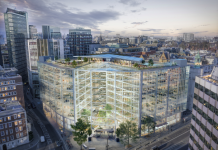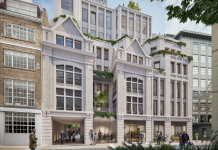Against a backdrop of Brexit uncertainty that has subdued the growth of other commercial sectors, the hotels sector has continued to grow both in London and the regions, and has become an increasingly popular choice with investors. With Manchester fast becoming the second major destination in the UK after London.
Following this increased interest, GVA has launched its inaugural Hotels Economic and Property Market Review, providing an analysis of the hotel performance, supply and investment trends throughout key UK markets that determined performance in 2017, and an outlook for the year ahead.
Some key findings from the report:
In 2017, investment transactions in the hotel industry exceeded £3.9 billion, up 25% on 2016, while the number of overseas visitors and the popularity of domestic ‘staycations’ saw a modest rise in occupancy in both the regions and London, up 0.5% and 0.3% respectively. In line with this, both the regional and London market have displayed a positive growth story, with estimates suggesting supply increased in 2017 by 5.6% in London and 2.1% in the UK regions. This is set to grow further in 2018, with new room openings forecasted to rise by 4.6% and 2.4% in London and the regions respectively.
Investment has been underpinned by the international appetite for UK hotels, accounting for 60% of transactions value in 2017 compared to only 20% in 2016. This was based not only on the continued interest from established investors, with US, Middle Eastern and Far Eastern buyers accounting for 28%, 23% and 12% of the value purchased by overseas investors respectively, but also numerous countries such as South Africa and Sweden increasing their presence in the market. Indeed, 29% of the value was uncategorised and suggests a wide array of global interest as UK hotel assets provide long term security.
Development growth has been largely driven by rising returns and investment values offsetting building costs to make hotel developments viable in an increasing number of areas, with this year bringing significant openings in cities including Bristol, Glasgow, Manchester, Liverpool and Cambridge.
This has also shaped supply in London although on a smaller geographical scale, as rising Average Daily Rates (ADRs) and emerging areas associated with the financial services and tech sectors have pushed out the boundaries from centrally focussed development into the City, Shoreditch and Docklands. Looking ahead, the rising Revenue per available room (RevPAR) will continue to support development activity and bring more areas into scope.
Martin Davis, GVA said: “The UK Hotel market grew in popularity amongst investors in 2017 despite Brexit uncertainties, with rising returns and investment values bringing more markets and areas into consideration as viable development projects, and hotel occupancy up 10% above its 2008 pre-recession peak, in spite of disrupters such as Airbnb. Like other markets, we have seen development polarise between more traditionally high-end assets and a thriving market for ‘budget’ properties, with 44% of the development pipeline openings being in the budget sector, followed by 32% in all four-star properties.
“Looking ahead, while there will be headwinds facing the sector with margins likely to come under pressure from labour, food and utility cost rises and increasing business rates, we expect that with significant deals, such as the proposed sale of Jurys Inn, and the likely, if modest, increase in yields as well as ADR and RevPAR, the hotel investment market will remain strong in London, Manchester and many of the key regional cities in 2018.”
A look at the Manchester market specifically sees significant growth during 2017.
Commenting on regional market, Martin added: “The Manchester hotel market has grown considerably in recent years. Between 2013 and 2017, there was a supply increase of 26 new hotels in the city with an additional 29,962 bedrooms. Significant growth was seen in 2017 alone with an increase in total supply by 7.1% and RevPAR by, despite the dreadful Manchester Area attack.
“Manchester has fast become the second major destination in the UK after London. There is strong demand for hotels from operators and investors, with attractive lower asset values and the ability to deliver a faster return than London. The North West is set to develop even further with HS2 rail, Manchester Airport expansion, Media City and the Northern Powerhouse Initiative.”





















